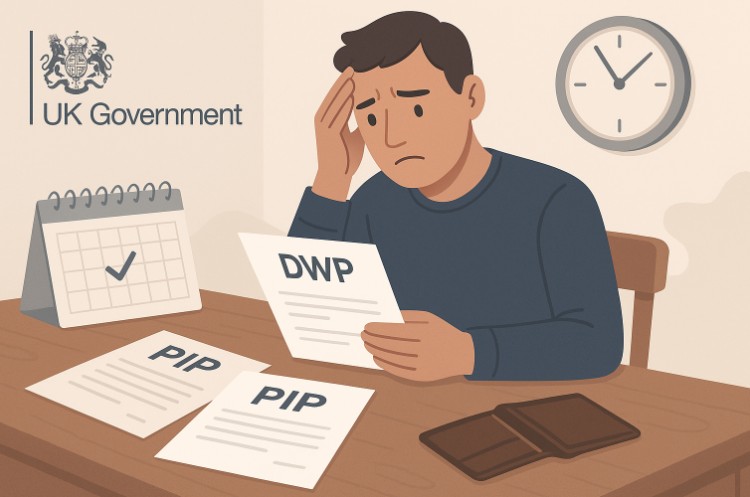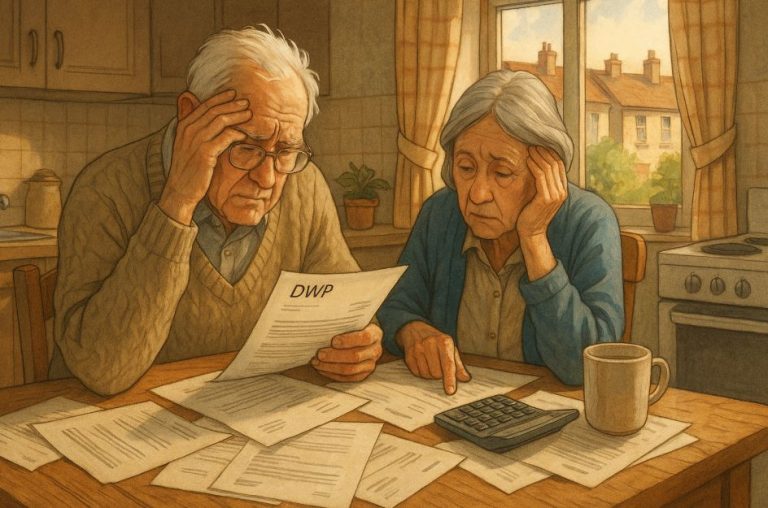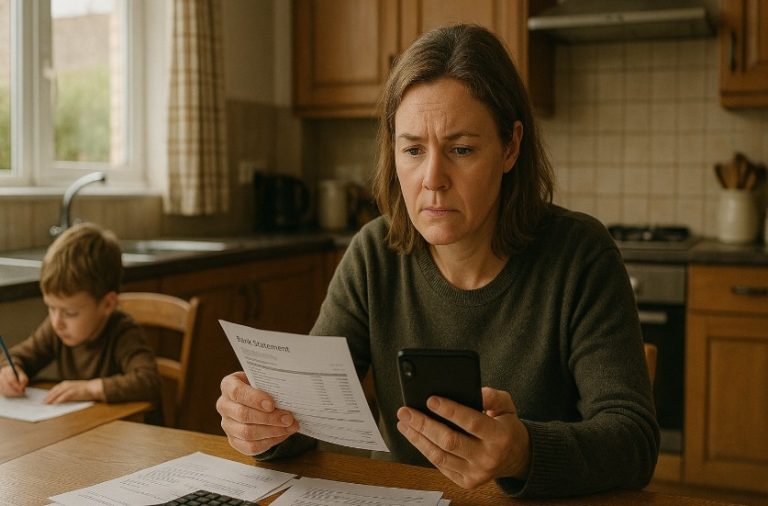Living with Crohn’s disease can be physically, emotionally, and financially challenging, particularly when symptoms interfere with daily life and employment.
In the UK, individuals diagnosed with this long-term condition may be entitled to a range of disability benefits and support schemes.
Understanding what financial help is available can make a significant difference in managing the cost of care and maintaining independence.
This guide outlines the key benefits you may be eligible to claim if you live with Crohn’s disease.
What Is Crohn’s Disease And How Does It Affect Daily Life In The UK?

Crohn’s disease is a chronic inflammatory condition of the gastrointestinal tract. It can cause a variety of symptoms such as persistent diarrhoea, abdominal pain, fatigue, and unintended weight loss. The severity and frequency of symptoms differ significantly from person to person.
In the UK, individuals with Crohn’s disease often face daily challenges, particularly during flare-ups. These include:
- Difficulty managing personal care tasks
- Frequent absences from work or education
- Limitations in mobility and stamina
- Emotional and psychological stress
Under the Equality Act 2010, Crohn’s disease can be recognised as a disability if it significantly impairs daily life.
This classification can provide access to government financial support and reasonable adjustments at work or in education.
Can I Claim Personal Independence Payment (PIP) For Crohn’s Disease?
Personal Independence Payment (PIP) is one of the main disability benefits available for adults aged 16 to State Pension age.
It is designed to help with the extra costs associated with long-term health conditions such as Crohn’s disease.
PIP is structured into two components:
| Component | Purpose | Rates Available |
| Daily Living | For help with tasks like washing, eating, and taking medication | Standard and Enhanced |
| Mobility | For difficulty moving around or going out alone | Standard and Enhanced |
Eligibility is assessed by looking at how your condition affects your ability to carry out specific daily activities.
You will be required to undergo a functional assessment and may need to attend a face-to-face or virtual consultation. It is essential to provide:
- Medical evidence from your GP or specialist
- Symptom diaries
- Statements from carers or family
Even if symptoms fluctuate, claimants should explain how the condition impacts them on their worst days, as this is considered during the assessment.
Am I Eligible For Employment And Support Allowance (ESA) With Crohn’s?
Employment and Support Allowance (ESA) supports individuals who are unable to work due to illness or disability. If Crohn’s disease restricts your ability to maintain employment, ESA may be available to you.
There are two main types of ESA:
| Type of ESA | Eligibility Criteria |
| New Style ESA | Based on National Insurance contributions |
| Income-related ESA | Now largely replaced by Universal Credit |
ESA claimants are assessed using the Work Capability Assessment, which determines whether the individual:
- Has limited capability for work
- Has limited capability for work-related activity (higher level of support)
During this process, you will be asked to complete a form called ESA50 and may be invited to a medical assessment.
Providing up-to-date medical evidence and clear examples of how Crohn’s affects your day-to-day functioning increases the chance of a successful claim.
Does Universal Credit Cover People With Crohn’s Disease?
Universal Credit (UC) is a means-tested benefit that replaces several legacy benefits, including income-based ESA and Income Support. It supports individuals on low incomes or those who cannot work due to a long-term health condition like Crohn’s disease.
If you are claiming UC due to health issues, you will be assessed for either:
- Limited Capability for Work (LCW)
- Limited Capability for Work and Work-Related Activity (LCWRA)
These categories determine your work expectations and whether you qualify for additional financial support. To begin this process, you must:
- Submit a Fit Note from your GP
- Complete a UC50 health questionnaire
- Attend a Work Capability Assessment
Claimants awarded LCWRA receive an additional monthly element and are not required to job search. Keeping your UC online journal updated with medical updates is vital throughout the process.
What Financial Support Is Available For Children With Crohn’s Disease?
Children with Crohn’s disease may qualify for Disability Living Allowance (DLA). This benefit is available to children under 16 who have care or mobility needs that exceed those of other children their age.
DLA has two components:
- Care Component: Low, middle, or high rate depending on the level of care required
- Mobility Component: Lower or higher rate based on the child’s mobility issues
Parents or guardians will need to provide:
- Medical reports from paediatricians or IBD nurses
- Letters from teachers or SEN staff
- Records of care needs at home
DLA does not affect entitlement to other benefits and can lead to further support such as Carer’s Allowance for parents.
Can Older Adults With Crohn’s Claim Attendance Allowance?

Attendance Allowance is available to individuals over State Pension age who require help with personal care due to a disability or health condition like Crohn’s disease. Unlike PIP or DLA, Attendance Allowance does not include a mobility component.
To be eligible, applicants must:
- Have needed help for at least six months
- Be physically or mentally affected enough to require supervision or assistance
- Provide evidence of how Crohn’s affects their ability to look after themselves
There are two rates: lower and higher, based on the level of care needed during the day or night. Applications should include detailed descriptions of how symptoms impact day-to-day life, such as frequent toilet use, fatigue, or medication management.
What Additional Support Schemes Are Available For People With Crohn’s?
In addition to mainstream benefits like PIP, ESA, and Universal Credit, individuals with Crohn’s disease in the UK may be eligible for a range of supplementary support schemes.
These additional forms of help can provide practical relief in daily life and ease the financial strain of managing a long-term health condition.
Access To Free NHS Prescriptions
If you live in England and require regular medication to manage your Crohn’s symptoms, you may qualify for free prescriptions through a Medical Exemption Certificate (MedEx). This certificate is available to individuals with specific long-term conditions and must be applied for via your GP.
The certificate covers all NHS prescriptions, not just those related to Crohn’s, and is valid for five years, after which it must be renewed.
Blue Badge Scheme For Easier Parking
People with Crohn’s disease who experience mobility challenges or need urgent access to toilet facilities may qualify for a Blue Badge. This scheme allows for easier parking in public areas, closer to shops, work, and essential services.
While the eligibility criteria often focus on physical mobility, some local councils now consider hidden disabilities, including conditions that cause unpredictable urgency, such as Crohn’s disease. Medical evidence and a personal account of how the condition affects your travel needs will be required.
Disabled Person’s Railcard And Travel Discounts
Travel costs can add up when attending regular hospital appointments or trying to stay socially connected. The Disabled Person’s Railcard offers one-third off rail fares across the UK and can be used for both leisure and medical travel.
You may also qualify for free or discounted bus travel in your local area, depending on your disability status and council policies.
Motability Scheme For Car Leasing
If you receive the enhanced rate of the mobility component of PIP, you may be eligible for the Motability Scheme.
This allows you to lease a new vehicle using your PIP payments, which can be helpful if you need reliable transportation for regular medical appointments or if your condition limits the use of public transport.
Utility And Household Discounts
Living with Crohn’s can increase household costs, particularly heating and water usage. Several schemes may be available to reduce these costs:
- Warm Home Discount Scheme
- Priority Services Register for vulnerable customers
- WaterSure Scheme, which caps water bills for those with medical needs
Eligibility often depends on receiving certain benefits and providing evidence of medical necessity.
Support From Charities And Grant Providers
Organisations like Crohn’s & Colitis UK, Turn2us, and local welfare funds offer grants or emergency financial help for people managing long-term health conditions.
These funds can help cover one-off expenses such as mobility aids, specialist clothing, or support with rent arrears.
Charities may also offer counselling services, advocacy, and advice lines to help individuals navigate complex benefit systems and secure additional support.
How Should Someone With Crohn’s Prepare To Apply For Disability Benefits?

Applying for disability benefits with a condition like Crohn’s disease can be daunting. Because symptoms often vary day-to-day and may be invisible to others, strong preparation is essential to ensure your claim is taken seriously and fairly assessed.
Gather Comprehensive Medical Evidence
Medical documentation is the foundation of a successful claim. Start by collecting:
- Letters from your GP, gastroenterologist, or IBD nurse outlining your diagnosis, treatment plan, and functional limitations
- Results from endoscopies, blood tests, or other diagnostics
- A list of medications and their side effects, especially if they impact daily functioning
Ask your healthcare providers to include how your condition affects your ability to work, care for yourself, or get around.
Keep A Symptom Diary
One of the most effective ways to demonstrate the day-to-day impact of Crohn’s disease is to maintain a detailed symptom diary. This should cover:
- Frequency and urgency of bowel movements
- Levels of fatigue, pain, and nausea
- Impact on sleep, appetite, and mental health
- Missed work, social, or family commitments
Ideally, the diary should span at least 2–4 weeks and reflect both “good” and “bad” days to show the condition’s variability.
Include Personal And Third-Party Statements
In addition to medical reports, statements from people who know you well can provide context and support your claim. These may include:
- Family members who help with care or observe your symptoms
- Employers or teachers who can confirm attendance issues or functional limitations
- Carers or support workers who assist with mobility or daily activities
Such statements offer real-world examples of how Crohn’s affects your independence and quality of life.
Understand The Assessment Process
Whether you’re applying for PIP, ESA, or Universal Credit, you will likely be required to undergo a functional assessment. These may be in-person, phone-based, or paper-based, and assess your ability to:
- Prepare food
- Manage medication
- Travel independently
- Maintain focus or concentration
Be honest and detailed in your responses. Focus on the worst days, and avoid downplaying symptoms out of habit or modesty. Assessors need to understand how the condition limits you in real terms.
Seek Professional Help If Needed
Welfare rights advisers, Citizens Advice, and condition-specific charities like Crohn’s & Colitis UK offer expert help with:
- Completing benefit application forms
- Gathering supporting documentation
- Writing detailed explanations for assessors
- Appealing decisions if your claim is denied
In complex cases, a welfare adviser can even attend a tribunal with you or help submit additional medical evidence.
What Common Challenges Do People With Crohn’s Face When Claiming Benefits?

Despite being eligible, many people with Crohn’s disease face obstacles when claiming disability benefits. The fluctuating and invisible nature of the illness makes it difficult to convey the severity of its impact during assessments.
Common issues include:
- Assessors not recognising the variability of symptoms
- Applicants underreporting how bad symptoms can get
- Insufficient or outdated medical documentation
- Misunderstanding of chronic fatigue and bathroom urgency
When a claim is denied, applicants have the right to request a Mandatory Reconsideration, and if unsuccessful, to appeal to an independent tribunal. Gathering more detailed evidence and getting professional advice often improves success at appeal.
Conclusion
Living with Crohn’s disease comes with a variety of challenges, but the UK offers a comprehensive network of financial support for those affected.
From PIP and ESA to Universal Credit and additional schemes like Blue Badges and free prescriptions, individuals with Crohn’s can access help tailored to their needs.
Understanding eligibility, preparing detailed documentation, and seeking expert guidance can make a significant difference in the outcome of a benefits claim. No one should have to manage Crohn’s disease without the right support in place.
FAQs About Crohn’s Disease and UK Disability Benefits
Can I get benefits if my Crohn’s disease is in remission?
Yes, if your condition still limits your activities during flare-ups or causes ongoing symptoms like fatigue or anxiety, you may still be eligible for benefits like PIP.
How long does it take to get PIP after applying?
The PIP application process can take anywhere from 8 to 20 weeks depending on the complexity of the claim and the need for additional assessments.
Is Crohn’s disease automatically classed as a disability?
No, it depends on how the condition affects your daily life. If it substantially impacts normal day-to-day activities, it may be classed as a disability under the Equality Act 2010.
Do I need a formal diagnosis to claim benefits for Crohn’s?
Yes, a confirmed diagnosis from a medical professional is essential. You will also need to demonstrate how the disease impacts your life.
Can I work and still receive benefits for Crohn’s disease?
Yes, depending on your circumstances. Some benefits like PIP are not affected by employment. Universal Credit may also provide support even if you’re working part-time.
Will benefits affect my tax or savings?
Most disability benefits are non-taxable. However, some income-based benefits may be affected if you have savings over a certain threshold.
Where can I get help filling out benefit forms?
You can contact Citizens Advice, local welfare rights organisations, or charities like Crohn’s & Colitis UK for help with applications and appeals.






